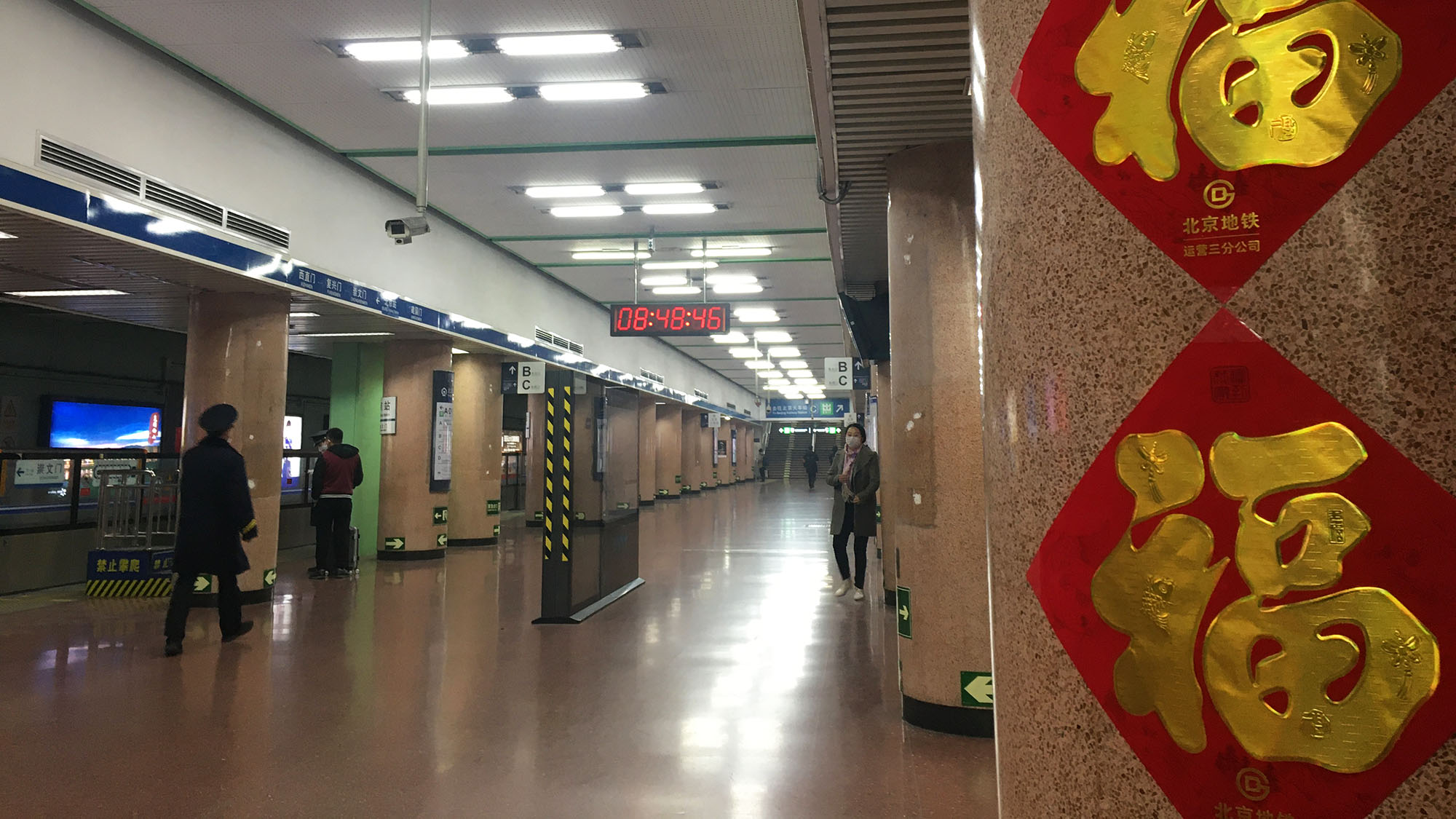Halifax woman quarantines herself as precautionary measure against Chinese virus
Sarah Parisio left China the day before travel bans were implemented

caption
A Beijing subway station during the coronavirus outbreak.Sarah Parisio is in the final stretch of completing a self-imposed quarantine after her return to Halifax from China.
She returned home from Beijing on Jan. 30 — the last day she could. Air Canada implemented a travel ban to-and-from Beijing and Shanghai the next day.
The airline began enforcing the travel ban after the Canadian government issued an advisory to avoid non-essential travel to mainland China due to the risk of spreading the novel coronavirus. On Tuesday, Air Canada extended the suspension of its flights until March 27.
Parisio travelled to China in early January while the virus was still localized and less of a public concern.
“It evolved in the time that I was there, the last five or six days I was there, it became increasingly worse, with more and more cases being identified in the world as well as other cities in China,” she said.
“People began to take things like quarantine and self-isolation a lot more seriously. When I was in Beijing days before leaving, in fact, there was no one out and about at all.”
Response in Nova Scotia
Nova Scotia has not yet confirmed any cases of the coronavirus, but there have been three cases reported in Ontario and four in British Columbia.
In an emailed statement, Dr. Robert Strang, Nova Scotia’s chief medical officer of health, said self-isolation is an important measure to help prevent the spread of disease.
“We are asking people who have returned to Canada following travel in the Hubei province, China in the last 14 days to limit their contact with others for 14 days from their last day in the region,” he said. “For people who have returned from travel in any other part of China in the last 14 days, self-isolation is not necessary.”
According to a release from the Nova Scotia government, new national screening protocols are in place for 10 Canadian airports, including Halifax Stanfield International Airport.
“People who have been in Hubei province in the last 14 days will be asked questions about their health by Canada Border Services Agency personnel and provided information about symptoms and self-isolation, if applicable,” it said.
Because Parisio was not in Hubei province, she has no obligation to self-isolate, but she has taken it upon herself as a precaution to protect others.
“I’m coming back from a place where I was seeing numbers go up by the thousands every day. So, my state of alert is higher than what your average might feel,” she said.
“I don’t think it’s exaggerated to take precautions and I don’t consider it to be exaggerated to be on a self-imposed quarantine.”
She said her employer is okay with her working from home.
Response in China
Parisio, who has a career working in emergency management for the Canadian Red Cross, was fascinated by the response by the state to the epidemic.
China shared the full sequence of the coronavirus genome on Jan. 10, one month after the first case of pneumonia from an unknown virus was reported.
Parisio said there were security measures throughout China including where the virus hadn’t necessarily impacted many people.
“They would check your body temperature, so you couldn’t even get into a place if you either had a fever or they suspected that you were ill,” she said about the metro in Beijing. “Because if you were showing any signs of symptoms you wouldn’t be in those spaces at all.”
Parisio said her experience during her return trip proved easier than she expected.
“I do think the Canadian response is very mild, it’s less aggressive than it is in other places,” she said.
Before boarding her flight, officials checked Parisio’s body temperature and she had to complete a form declaring she felt healthy.
Parisio said she was lucky to have booked her return flight for the day before the travel ban, but her friends travelling with her had their later flights cancelled.
More than 50 countries and territories have implemented travel restrictions to mainland China, according to the International Air Transport Association.
About the author
Michael Trombetta
Michael is a student writer at King's College. He's an English literature graduate of Ryerson University. Interested in people, our environment,...
